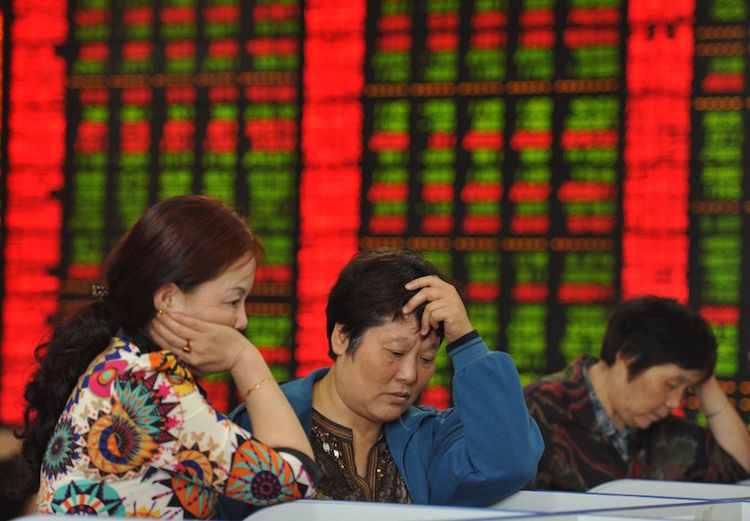Panic sets in as Shanghai Composite drops 30pc, $3.7 trillion wiped of China share market despite crackdown
by Sue Lannin
ABC.net.au.news
Panic has set in on China’s share markets as traders call in investors’ margins loans.
The main index, the Shanghai Composite, has plunged by 30 per cent since its peak in the middle of June, the biggest three-week fall in more than 20 years.
The value of Chinese stocks has plunged by at least $US2.8 trillion ($3.7 trillion).
A new crackdown on market manipulation and mis-selling of investment products by the securities regulator has failed to stop the falls.
That has prompted fears of a share market crash in China but analysts in Australia are playing down the risks.
The Shanghai Composite Index has dropped by a third since the middle of June after rising around 150 per cent over the past year.
It plunged by nearly 6 per cent on Friday in another volatile day of trade.
But AMP Capital chief economist Shane Oliver is optimistic and described it as correction, not a crash.
“We’ve already had quite a sharp fall, I don’t think we’ll see a crash in the Chinese share market,” Mr Oliver told PM.
“It’s not dramatically overvalued.
“What I think we are seeing here is a correction.
“It rose too far too fast over the last 12 months, up 140 per cent, just went up there too quickly.”
‘The stock market can go lower’
Chinese regulators are investigating market manipulation and short selling, when investors borrow shares to sell in the hope of buying them back at a profit.
They have also said they will protect investors against what they call sales violations on investment products.
This week, regulators relaxed restrictions on margin lending and cut interest rates to try and stop the share market decline.
I don’t think its a risk to the Chinese financial system… It is securities firms who are dominant in the margin lending sphere
Westpac senior international economist Huw McKay
Chris Weston, the head of research at IG Markets, said efforts by Chinese authorities to stem the falls have not worked so far.
“We’re even hearing now that they are allowing people to use housing as collateral for financing, so you can really bet your house on the stock market, which sounds like it could end very much in tears,” he said.
“I think what we seeing now is a major deleveraging going through.
“The stock market for me looks like it can go lower.”
The big rise on Chinese share markets over the past year has been driven by the popularity of margin loans in China, loans taken out by investors to buy shares, a move encouraged by the Chinese government to develop equity markets.
Some estimates put the value of margin loans at as much as $US645 billion.
Traders are now calling in some of those loans because of fears that stocks are overvalued.
But Huw McKay, senior international economist at Westpac, does not think it is a threat to the Chinese financial system because most margin lending is done by the private sector.
“I don’t think its a risk to the Chinese financial system,” he said.
“It is securities firms who are dominant in the margin lending sphere.
“The core of the banking system is relatively untouched here.”

